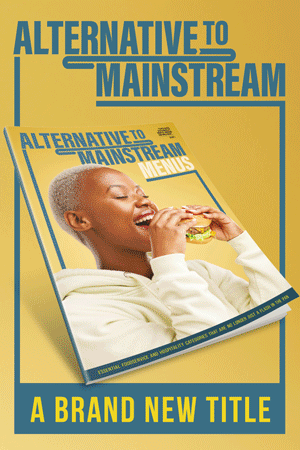Feature: Winter is coming

The eating out sector is poorly equipped to deal with double-digit inflation that is likely to prove more enduring than official sources are admitting. Jane Renton reports back on a recent Arena event and the presentation from James Walton, chief economist at IGD..
My husband likes to bemoan what he regards as my ’frighteningly high-maintenance’ ways, complaining to anyone who will listen that he’s married to Imelda Marcos. Who, he asks, needs 50 pairs of shoes?
But even I have boundaries. One of them was crossed when I found myself charged £17 a few days ago for a loaf of sourdough and a small jar of pistachios at a smart deli, whose slogan should be ‘Never knowingly oversold’.
Inflation is like Goldilocks’ porridge: let it run too hot and its impact is terrible. Too cold is economically depressing. But a little warmish, just right. Unfortunately, we’ve gone way beyond that. The current inflationary porridge is burning the roofs of our mouths and is forecast to reach 10.2% by the fourth quarter of this year, according to the Bank of England. That is far too high, especially given that the consumer price index always underestimates inflation, implying that the real underlying rate of using the more realistic retail price index is possibly going to be as high as 11% or even 12%.
Better put the pistachios and sourdough aside and head for Poundland; especially if earnings or investment income are not rising by the same amount, which is likely to be the case for many of your customers. And even if they are, higher inflation makes it harder for people to work out if particular goods are becoming more expensive relative to others, rather than merely rising in line with average price increases.
The same holds true for companies in your sector. Few, if any, of your current managers are likely to have any real memory of the bad, mad old days of the seventies, when inflation ran riot and unemployment rose. Profit margins are being squeezed by rising input prices, while output prices are rising more slowly. It is a precarious position to find oneself in.
“Very few people in the industry have any experience of dealing with high inflation, even its senior people,” warned James Walton, chief economist at IGD, speaking at a recent Arena Networking industry event.
What was different in the seventies and eighties compared to now was that interest rates also soared to double-digit figures, as the fight to get inflation under control raged. The Bank of England’s response to the latest forecast was to gingerly lift the interest rate by a quarter point to just 1%.
Nor should solace be drawn from repeated assertions that inflation by the Bank of England and others that the current uptick in inflation is only a temporary blip. It is banking on the spike in energy prices to stifle demand and that supply chain bottlenecks will finally be resolved as Covid eases. But those expectations are far from convincing, especially given the estimated 500,000 people needed to make the UK supply chain work.
The truth is that inflation has been quietly building up in the system ever since the credit crunch of 2008 when central banks around the world began flooding money markets with quantitative easing in its aftermath. Those same stimulus measures were deployed and escalated again during the pandemic.
The Bank is now in a tricky position: it is supposed to hold inflation at no more than 2% - yet it cannot use its main weapon, interest rates, to get inflation under control. Nor can the bank do anything about world commodity prices, which are mostly poised to soar a lot higher. We are heading towards a grim world of stagflation, where double-digit inflation combines with non-existent economic growth to put maximum pressure on individuals and businesses, while our central bank cannot help us out.
The central bank also noted that it expected household disposable income to undergo its second-worst fall on record and for gross domestic product to shrink in the fourth quarter. Unemployment is also expected to rise.
Growth in the eating out sector is likely to be at best moderate, at worst low, and sales were unlikely to get back to their pre-Covid levels before 2024 or even 2025, said Walton. The current war in the Ukraine would only make the cost-of-living crisis worse. “I think a lot of food businesses were actually struggling to serve customers as well as they wanted even before the war began, because the UK supply chains have actually been under pressure for a very long time,” he said.
It wasn’t just energy prices that were impacted by the war in Ukraine. Both the Ukraine and Russia were not just exporters of oil, but also grain and as a result agri-food prices had never been higher as they are now. Protectionism is also on the rise, with governments, such as Indonesia, the biggest single exporter of palm oil in the world, blocking further such exports to protect its own citizens. “It isn’t sending any overseas,” explained Walton. “It’s preserving the supply for its own citizens so they can afford to cook.”
With the real value of a typical wage steadily falling, and a hefty fall in household wealth likely to accelerate in October when the next price cap is lifted and people have to pay considerably more for their fuel, the prospects for the hospitality sector will inevitably deteriorate. “I fear this will clobber the eating out performance,” said Walton.
The tight employment market will also push up labour costs, with unions likely to press even harder for cost-of-living wage rises. “Our contacts in the food industry tell us that worker unions are becoming more assertive and aggressive and, in some cases, – probably most cases – are paying more if they can,” said Walton.
Aldi, Lidl, Marks & Spencer, Sainsbury’s and Tesco have all awarded pay increases recently, with many manufacturers following suit. “I am pretty sure that businesses in foodservice are doing the same thing,” Walton added.
Inflation is certainly central to outcomes, but accommodating inflation at the current predicted levels will be “a massive challenge”, especially given the narrow margins on which the eating out industry operated on. “You are either going to have a massive improvement in productivity or a massive increase in the amount of money charged to the end-user,” warned Walton.
But as he pointed out, the track record of the sector, when it comes to productivity, is patchy at best. “They are really struggling to move the needle, despite all the investments they have made. They clearly need to go further faster if they are going to pay enough to their employees.”
Similarly, Walton disagreed with official projections by the Office for Budget Responsibility and the Bank of England that inflation would sweep up in one big spike and then drop away, saying: “I am more worried that free, private inflation is going to be more persistent and last longer because of global money supply.”
Shoppers, as Walton suggests, have a better handle on prices and are capable of accurately identifying the true rate of inflation for themselves. Their views are already reflected in recent graphs showing consumer confidence “absolutely tanking”, even among more affluent groups. “People don’t just sit back, they invest more efforts into saving money,” said Walton. “They are less spontaneous and they plan more. They cook from scratch rather than buy readymade, and part of that is that they eat out less and have fewer takeaways.”
The challenge for business will be to deliver an eating out solution that will fit with the current economic landscape. “That will mean putting value, front and centre, and productivity also has to be better,” said Walton.
But as he admitted, value alone might not be enough, with people being under so much financial pressure. Businesses will have to also invest in technology, health, the social experience and delivery.
“If we can do this, then the longer-term future is good,” Walton concluded. People still want to eat out and socialise – and even buy expensive sourdough. It is just that they might need a bit more persuasion to do so.









